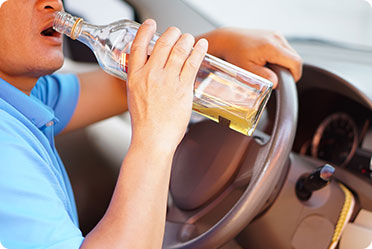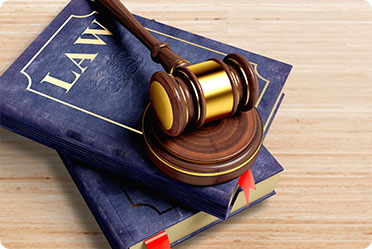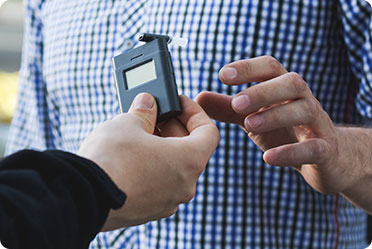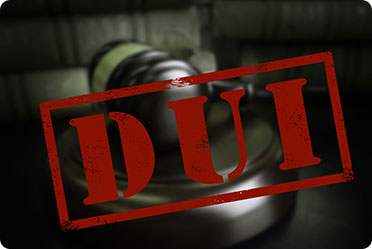
A DUI is a serious matter. While first-time offenders may have better luck than repeat offenders, few people can afford to deal with the consequences of being arrested for driving under the influence. There are many consequences for being convicted of DUI. Continued alcohol and drug screening and counseling are often the result of such an arrest. States such as Pennsylvania and New Jersey assign alcohol/drug screening and counseling as a penalty for being convicted of a DUI. Such screening and counseling can also become a condition of sentence when pleading guilty to a lesser charge through plea bargaining. Each case varies, but alcohol screening…Read More

A common belief is that if someone “failed” a breath test, then that person was intoxicated. That belief, however, is far from the truth. Many factors can cause breath testing machines to produce false blood alcohol concentration (BAC) readings. After a DWI arrest, police officers must closely watch the person arrested prior to taking breath samples for testing. During this period of observation, the officer must ensure that the person to be tested did not put any objects in his or her mouth. Items, such as gum, mints, or water, may cause a breath testing reading to be artificially elevated.…Read More

A DUI attorney is charged with the responsibility of aiding a person facing a DUI or DWI charge by addressing the accompanying legal complications. While not every lawyer is ethical and trustworthy, ethical DUI lawyers that actually care about their clients do exist. There are a few things to consider when it comes to DUI attorneys and ethics. Protecting the Rights of the Client The first and most important responsibility of ethical DUI attorneys is to protect the rights of the client. It is their job to make sure that the client has not been deprived of any constitutional rights. They take the time…Read More

Okay. So, you have been arrested for suspicion of DUI. Then, the police officer asks you to submit a breath, blood or urine sample in order to determine your body’s blood alcohol concentration. What do you do now? Should you refuse? Each state has its own version of what is called the “Implied Consent Law.” Implied consent laws essentially require all drivers submit to blood, breath, or urine testing if arrested for suspicion of DUI. New Jersey and Pennsylvania laws prohibit the police from forcing a driver to give samples for testing. Therefore, a driver may refuse to comply with…Read More

You’ve been looking forward to St. Patrick’s Day for weeks, if not months. Coincidentally, March Madness officially begins on the same day. It’s the perfect storm for good times. Waking up on Friday morning to go back to work is going to be rough. However, you do not want to add to the post St. Patrick’s Day blues with a DUI charge. You need to take the appropriate steps in order to avoid problems with the law. First, the easiest way to avoid a DUI is to not get behind the wheel of a car after drinking. Have a designated…Read More

Recently, two Pennsylvania State legislators have co-sponsored DUI legislation that seeks to increase penalties for first-time DUI offenders. This new law would require certain first-time DUI offenders to place an ignition interlock device on any car owned or operated by the offender. The ignition interlock device is installed on a vehicle at the owner’s expense. Once installed, the driver must blow into an attachment linked to the ignition before the vehicle is started and during its operation. If a certain amount of alcohol is present in the breath sample, then the vehicle does not start or shuts down once started.…Read More

Getting a DUI can be expensive, to say the least. There are many things to pay for, including the bail or bond to be released from jail, getting a car out of the impound lot, court costs and fines and the real kicker attorney fees. DUI lawyer’s fees can really get up there, as defending a person facing a DUI charge can take up a lot of time. It is in your best interest to find an experienced, well-trained attorney whom you can trust will work hard for you. If you plan on being the best position to win your DUI case and…Read More

In an apparent effort to curb drunk driving, the New Jersey Appeals Court has ruled that a person convicted of a DWI can sue the bar that served him alcohol. This ruling is based on the New Jersey Dram Shop Act. Historically, the Dram Shop Act allows a person injured in an accident to sue the establishment that served alcohol to a visibly intoxicated person who caused the accident. The question for the Court was whether the Dram Shop Act allows a drunk driver who caused an accident to sue the bar for injuries the drunk driver suffered in the…Read More

Most United States citizens believe that it is relatively easy to travel to Canada for business or vacation. Generally, this belief is true. However, if you have been convicted of a crime, then Canada will bar any admission into the country. This bar applies to DUI convictions as well. According to Canadian regulations, a DUI is considered a criminal conviction. This is also the case when the DUI charge was only considered a traffic offense in the state where the conviction occurred. Border patrol has computer access to a data base of U.S. records that shows whether any traveler has…Read More

Being passionate about one’s job can be its own reward. However, achieving satisfying results from job performance only augments this passion. Fortunately, I have an occupation for which I have tremendous enthusiasm and dedication. Today, this enthusiasm and dedication was well rewarded. A client was facing significant time in jail and a ten-year loss of license. This client was a hard-working individual who also happened to be a very nice person. One night while coming back from a restaurant, this person was cut-off by another driver and had a car accident. Admittedly alcohol had been consumed, but the client maintained…Read More